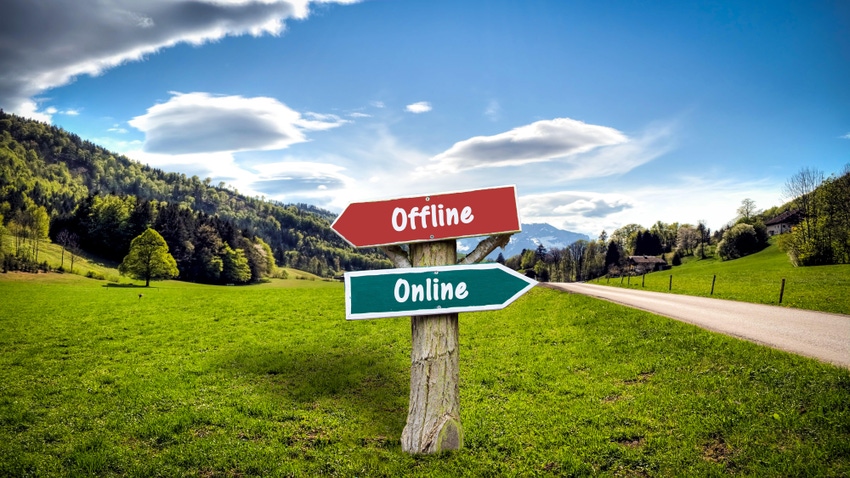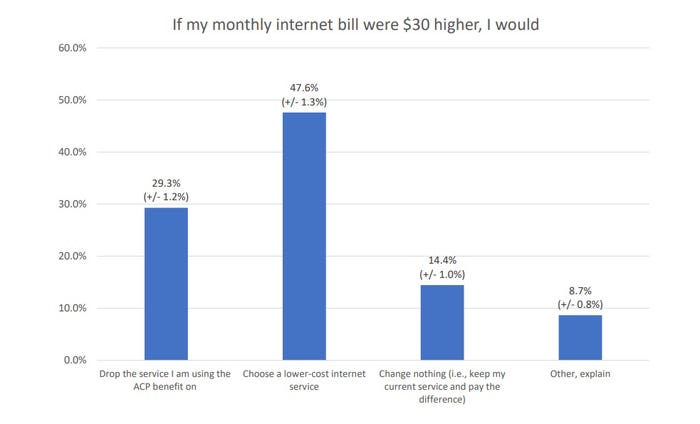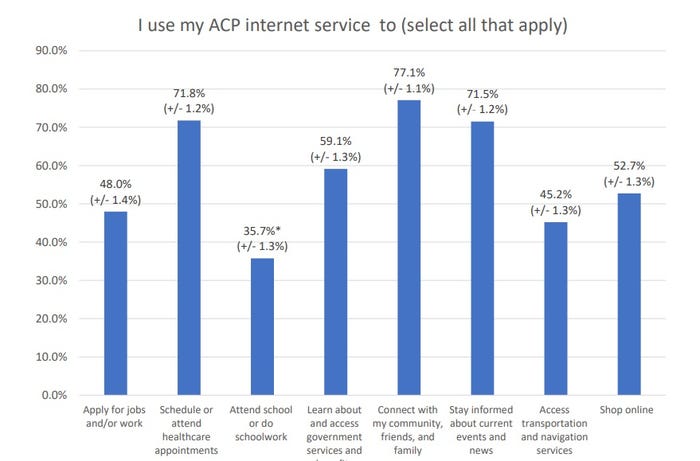Majority of ACP households will see service disruptions if program ends – FCC survey
Almost 30% of respondents to an FCC survey say they'd drop service if the ACP benefit ended and they had to pay an additional $30 per month. The program 'is not a nice-to-have, it's a need-to-have,' said FCC Chairwoman Jessica Rosenworcel.

The FCC issued a dire warning in the form of a new survey finding that two-thirds of Affordable Connectivity Program (ACP) households will "experience service disruptions" if the program ends.
Chances are rising that the ACP – a successor program to the Emergency Broadband Benefit program launched during the early phases of the COVID-19 pandemic – will indeed meet its demise as funding is expected to run dry in April.
The proposed Affordable Connectivity Program Extension Act aims to provide $7 billion to keep the program going. Several broadband service providers have pledged to utilize plans tailored for low-income households if the ACP goes away. The FCC has already taken steps to start unwinding the program – the Commission stopped accepting new enrollments on February 7.
29% would drop service
ACP has roughly 23 million recipients (or one in six US households) that get monthly discounts on broadband. ACP provides a monthly benefit of $30, and up to $75 per month for qualified households on tribal lands.
Based on two independent samples from emails sent to 110,000 ACP households (which garnered responses from 5,317), the FCC's December 2023 survey administered by the Universal Service Administrative Company (USAC) found that 68% said they had "inconsistent connectivity or zero connectivity" prior to ACP. About 80% of that group cited affordability as the prime reason.
Twenty-nine percent of those surveyed said they would drop the service they have today if the benefit was erased and they had to pay an additional $30 per month. That figure rose to 31.1% among ACP recipients in rural areas.

(Source: FCC's 'Measuring the Impact of the ACP' survey, December 2023)
Of the 29.3% of respondents who said they'd drop their service if the program went away, 53.6% said it would leave them with no Internet service.
Nearly half (47%) of respondents and 53% of rural respondents said they had either zero connectivity or were relying solely on mobile service prior to enrolling in the program.
The survey also found that 77% of respondents believe losing the ACP benefit would disrupt their service by making them change their current plan or drop Internet service entirely.
A 'need-to-have' program
Some 72% of ACP recipients said they are relying on connectivity for important tasks such as scheduling healthcare appointments, while 48% use broadband to complete work or apply for jobs and 72% of the 18-24 age group use it for schoolwork.

(Source: FCC's 'Measuring the Impact of the ACP' survey, December 2023)
Some 80% said they were satisfied, more than satisfied or very satisfied with the ACP benefit. Only 3.4% were not at all satisfied.
"Thanks to today's survey data, leaders making the decisions about ACP's future know one thing for certain: if we want to close our nation’s digital divide, the Affordable Connectivity Program is not nice-to-have, it's need-to-have," FCC Chairwoman Rosenworcel said in a note issued today. "We’ve come too far to turn back now."
Another survey highlights ACP's importance
The FCC's survey follows one from New Street Research that polled 1,000 ACP recipients.
New Street's study found that the program "may be far more important to low-income households that we previously realized." Notably, the level of "involuntary churn" has dropped during this period in which millions of households were able to subsidize their broadband bills.
New Street estimates that involuntary churn was slightly below 1% prior to the pandemic and has since dropped 20 to 40 basis points.
"With the drop in involuntary churn, the number of households that are intermittently without service could have fallen by 3-5MM," New Street Research analyst Jonathan Chaplin wrote. He expects service provider bad debt to increase if ACP ends.
New Street's study also estimates that there have been 4.6 million "excess" broadband subscribers added since the onset of the pandemic, with 3.2 million of them added by the end of Q1 2021. Another 1 million were added since the launch of EBB and an additional 500,000 were added following the introduction of the ACP.
About the Author(s)
You May Also Like




_International_Software_Products.jpeg?width=300&auto=webp&quality=80&disable=upscale)







